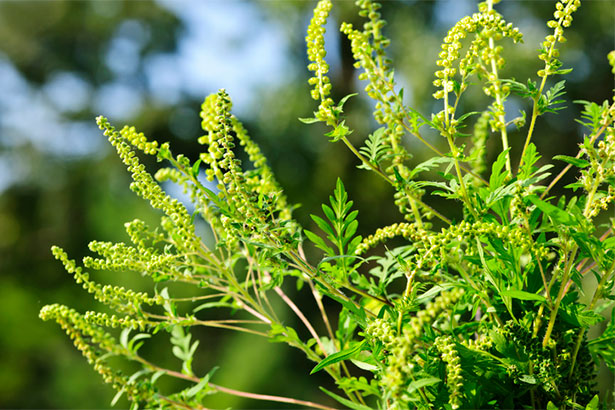
AccuWeather’s 2022 allergy forecast predicts the early phases of allergy season in New Jersey will be “average” when compared to previous years. However, the later phase of the season—also called weed season—is predicted to bring higher-than-normal levels of pollen.
If your seasonal allergies have already begun to flare up, you have tree season to thank—the first phase of allergy season that begins in March and is characterized by an uptick in tree pollen. By the middle of May, grass season takes the reins, followed by the final wave of the year: weed season.
Weed season begins in mid-August and lasts until the first frost. During this time, the pollen-packed ragweed plant is the main culprit of classic allergy symptoms like runny nose, itchy throat, and irritated eyes.
This year, New Jersey is predicted to see a worse-than-usual weed season.
“In fact, weed pollen will dominate the entire East Coast as an increase in moisture and temperature creates a favorable environment for weeds to thrive,” AccuWeather reports.
Though daily pollen counts will largely be determined by local weather conditions, an overall increase in ragweed pollen is something allergy sufferers across New Jersey will want to prepare for.
Daily Prevention
“As many people with allergies already know, the best treatment is often prevention,” said Niya H. Wanich, MD, an allergist and immunologist at Englewood Health. “If you have a routine that’s worked for you in the past—like the use of a daily antihistamine like Zyrtec or Claritin—consider beginning that regimen before symptoms arise.”
Protect Your Home
Protecting your indoor environment is also key. Keeping windows and doors closed; regularly cleaning washable fabrics like bedsheets, blankets, and curtains; and vacuuming and dusting often will help keep your home free of seasonal irritants.
Showering and changing your clothes when you enter the home, as well as keeping your shoes apart from your living space, will prevent tracking pollen inside; and the use of an indoor air purifier with a HEPA filter can reduce pollen floating in the air.
Prepare for the Outdoors
Dr. Wanich also recommends checking your local pollen forecast before planning outdoor activities. Mornings are typically high-pollen times, as are dry and windy days. The best time to be outside is after a rainstorm, as rain cleanses pollen from the air and washes it off cars, roads, and structures.
If you do find yourself amongst nature on a high-pollen day, wearing a mask can reduce the amount of pollen you breathe into your nose and throat.
“Remember that even with the best of efforts, it’s impossible to avoid pollen entirely,” said Dr. Wanich. “If you become irritated, the use of a saline nasal rinse to wash away pollen particles in your nose can be a huge relief.”
When using nasal spray, it’s important that the water be distilled or sterile—both of which can be bought in most stores. If you prefer to use water from your own home, make sure to boil it and let it cool before using it, so as not to transfer harmful bacteria into your nasal passages.
Consult an Expert
“If your allergy symptoms are still bothersome, consider consulting an allergist. There are so many options available that can provide relief from seasonal allergies—it’s just about finding the right course of treatment for you,” said Dr. Wanich.
Posted April 29, 2022
